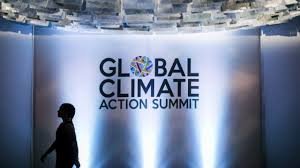The WCAS – World Climate Action Summit is a critical and timely event that can make a difference for the future of the planet and humanity. The WCAS can address the challenges and seize the opportunities that exist in the current context, and can foster a global climate leadership that is based on science, solidarity, and action.
The WCAS is part of the 28th Conference of the Parties (COP28) to the United Nations Framework Convention on Climate Change (UNFCCC), which is taking place in Dubai, United Arab Emirates, from 30 November to 12 December 2023. The WCAS aims to build on the momentum and achievements of the previous COPs, especially the Paris Agreement of 2015, which set the goal of limiting global warming to well below 2°C, preferably to 1.5°C, compared to pre-industrial levels.
The WCAS also seeks to address the gaps and challenges that remain in the implementation and ambition of the Paris Agreement, such as the need to enhance the nationally determined contributions (NDCs) of the parties, mobilize finance and technology for climate action, and support the most vulnerable countries and communities to adapt and cope with the impacts of climate change.
Challenges for the WCAS
The WCAS faces several challenges in achieving its objectives and delivering on its expectations. Some of these are:
The COVID-19 pandemic
The COVID-19 pandemic has posed unprecedented health, social, and economic challenges for the world, and has also disrupted the global climate agenda. The pandemic has delayed the COP26, which was supposed to take place in 2020, and has reduced the opportunities for international cooperation and dialogue on climate issues. The pandemic has also increased the fiscal and debt pressures on many countries, especially the developing ones, and has threatened to reverse the progress made on poverty reduction and sustainable development.
The geopolitical tensions
The geopolitical tensions among the major powers and regions have also hampered the global climate action and solidarity. The US withdrawal from the Paris Agreement under the Trump administration, the trade and technology conflicts between the US and China, the Brexit and its implications for the EU, and the regional instability and conflicts in the Middle East and Africa have all created uncertainties and divisions in the international climate regime.
The climate emergency
The climate emergency is becoming more evident and alarming with each passing day. The scientific evidence shows that the world is already experiencing the consequences of global warming, such as more frequent and intense heat waves, droughts, floods, storms, wildfires, and sea level rise. The Intergovernmental Panel on Climate Change (IPCC) has warned that the world has only until 2030 to cut its greenhouse gas emissions by 45% from 2010 levels, and reach net zero emissions by 2050, to have a reasonable chance of limiting global warming to 1.5°C.
Opportunities for the WCAS
The WCAS also has some opportunities to overcome the challenges and to accelerate the global climate action and leadership. Some of these are:
The green recovery
The green recovery is an opportunity to rebuild the economies and societies after the COVID-19 pandemic in a way that is more resilient, inclusive, and sustainable. The green recovery can also create jobs, reduce inequalities, and foster innovation and competitiveness. The WCAS can encourage and support the countries to adopt and implement green recovery policies and measures, such as investing in renewable energy, energy efficiency, clean transport, circular economy, and nature-based solutions.
The renewed commitment
The renewed commitment is an opportunity to reinvigorate the global climate ambition and cooperation. The WCAS can welcome and celebrate the recent positive developments, such as the US rejoining the Paris Agreement under the Biden administration, the EU adopting the European Green Deal and the Climate Law, China announcing its goal of achieving carbon neutrality by 2060, and India launching the International Solar Alliance and the Coalition for Disaster Resilient Infrastructure. The WCAS can also urge and assist the countries to submit their updated and enhanced NDCs before COP28, and to align their long-term strategies with the 1.5°C goal.
The youth and civil society
The youth and civil society are an opportunity to mobilize and empower the public and the stakeholders for climate action and justice. The WCAS can recognize and appreciate the role and contribution of the youth and civil society groups, such as the Fridays for Future movement, the Climate Action Network, and the Climate Justice Alliance, in raising awareness, demanding accountability, and proposing solutions for the climate crisis. The WCAS can also ensure the participation and representation of the youth and civil society in the decision-making and implementation processes of the UNFCCC.
The WCAS can also pave the way for a successful and ambitious outcome of COP28, which can put the world on track to achieve the Paris Agreement goals and the 2030 Agenda for Sustainable Development.






















